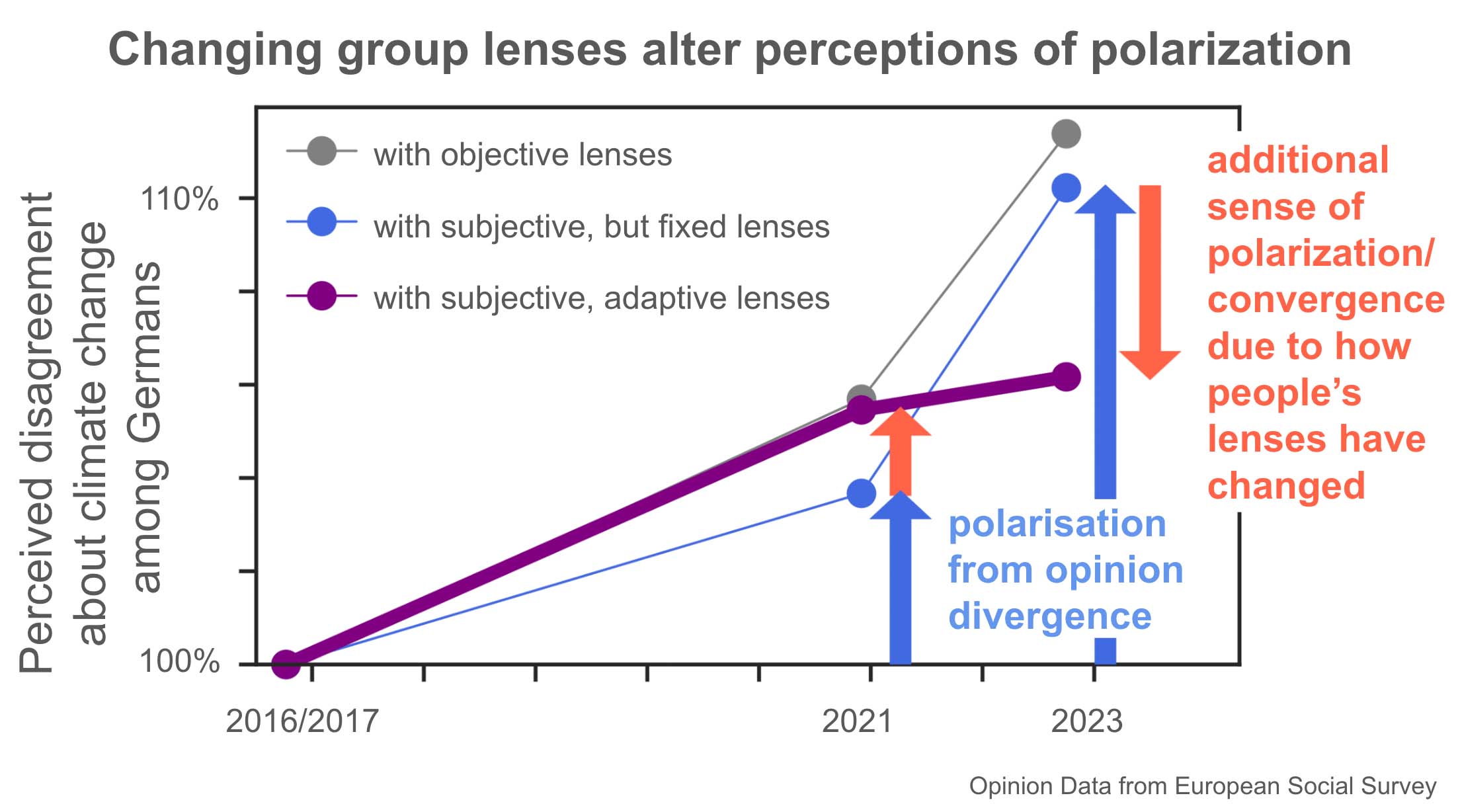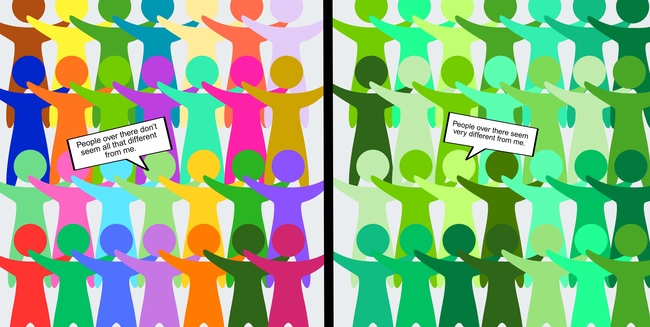08/07/2025 | Are opinions on controversial political issues as divided as many people perceive them to be? Researchers from the Leibniz Centre for Tropical Marine Research (ZMT) in Bremen, the Complexity Science Hub (CSH) in Vienna and the University of California Merced have addressed this question in a new social science study. The results have now been published in PNAS Nexus.
Many people think that society is becoming increasingly divided into opposing factions, giving the impression that ideological divides are deepening, for example on important issues such as public health, immigration, or climate change. Against this backdrop, past scientific studies have attempted to quantify the degree to which opinions actually diverge – often with contradictory results. In their new study, Peter Steiglechner (ZMT, now at CSH), Agostino Merico (ZMT) and Paul E. Smaldino (University of California Merced) explored how robust and realistic the widespread perception of polarisation is.
“When we think about contested political issues, we often have the impression that people within our inner social circles – family, friends, or political in-groups – hold relatively aligned and often even converging opinions. However, we sometimes also perceive that society overall is polarising. This uncomfortable perception may actually not always be entirely true,” says first author Peter Steiglechner.
New method for disentangling perceived from actual polarisation
While past empirical works on societal polarisation focused on objective measures of opinion divergence, in this new study, the authors introduce a way to disentangle actual and subjectively perceived polarisation in empirical opinion data.
To explain the mathematics underpinning the method in an intuitive way, the authors introduce the metaphor of a political “lens” – a hypothetical device, or point of view, through which individuals evaluate a set of opinions. This subjective “lens” reflects the spread of opinions within a person’s inner circle.
“The broader the spread of these opinions on a given topic, the ’thicker’ the lens and the less divergent the broader society is perceived with respect to that topic,” explains Steiglechner. “The narrower the spread in one’s inner circle, i.e., the ‘thinner’ the lens, the more polarised the broader society is perceived.”

Peter Steiglechner: "Opinion Data from the European Social Survey suggests that the level of disagreement among German citizens about questions related to climate change has increased from 2016/2017 to 2021 and further to 2023. However, this changes substantially if we assume that lenses adapt to how opinions are distributed in people's inner circles. Our method suggests that overall perceived disagreement might be quite different to what pure opinion divergence indicates (blue arrows): it was larger in 2021 and much smaller in 2023 (red arrows)." Graphic: © ZMT/CSH
Consensus within one’s circle can exaggerate perceptions of polarisation
Subjective, political lenses change over time and this dynamic crucially influences how a person perceives polarisation. The results show that perceived polarisation can even depend just as much on the dynamics of disagreement within identity groups (and thus on the lens) as on the actual divergence of opinion in the broader society.
“In other words, the more my inner circle agrees on matters such as climate change, the more I might feel a sense of polarisation at a broader societal scale on this topic, and vice versa.”, says Agostino Merico, co-author of the study. As this dynamic varies between political groups, the polarisation these groups perceive can also deviate greatly. “Ultimately, people don't even have to agree so much on how divided they are or on which issues they do or do not diverge,” concludes Peter Steiglechner.
Ideological polarisation – more than a perceived experience
The study offers a new perspective on assessing and measuring the extent of polarisation, say the authors. “In times when increased polarisation goes hand in hand with disruptive social or political trends such as the decline in social cohesion or the rise of authoritarianism, it is important to understand the social and psychological mechanisms underlying these phenomena”, emphasises Paul Smaldino, the other co-author of the study.
Peter Steiglechner concludes: “Societal polarisation – or the perception of it – influences policymaking on challenges such as climate change, food crises or environmental protection and potentially impairs the search for consensus and the implementation of solutions in a democratic way. Our study shows that a change in perception is critical for reducing polarisation.”
Publication:
P. Steiglechner, P.E. Smaldino, A. Merico (2025) How opinion variation among in-groups can skew perceptions of ideological polarization, PNAS Nexus, Volume 4, Issue 7, July 2025, pgaf184, DOI: https://doi.org/10.1093/pnasnexus/pgaf184
The study was funded by the German Research Foundation as part of the priority programme "Sea Level and Society".





